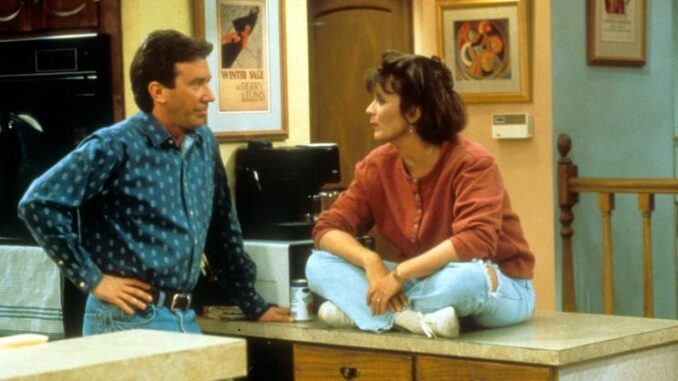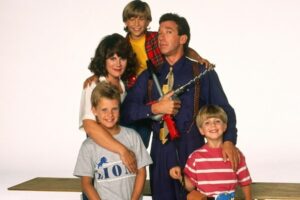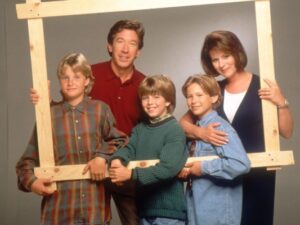
There was one very attractive reason I watched Home Improvement every week as a child. Say it with me: Jonathan Taylor Thomas. The Justin Bieber of the ’90s, JTT was talented, well-coiffed, and completely non-threatening, even though parents would be petrified knowing what pre-teens daydreamed about the young actor. When Home Improvement hit its stride in the mid-’90s, I hit the age in which boys were suddenly attractive, but still verboten enough to make any crush extremely embarrassing. So I used to admire JTT secretly. When no one was looking, I’d pick up the teen magazine at our grocery store to find out what JTT looked for in a girlfriend. My parents would cheer on my refined movie tastes at our local Hollywood Video, watching me appear interested in Terry Gilliam’s Twelve Monkeys when, really, I was just lingering in the “T” section of new releases to stare at JTT on the Tom and Huck VHS box. I soon discovered, however, that there was a much easier, far less embarrassing way to get my JTT fix: Tuning into Home Improvement.

Watching Home Improvement as an adolescent gave me a completely inaccurate crash course in boys: First off, they would only do household chores if it involved blowing things up, which, in real life, pretty much means never, so men are terrible. Second, they love plaid. And third, there are only three types of boys you could choose from: The Brute (Brad), the Brains (Randy), and the Awkward One Who Gets Married At 17 And Is Kind of Creepy (Mark). But as soon as I moved on from JTT to Nick Lachey, I began to enjoy Home Improvement for more than just its young eye candy. It was a rare blue collar comedy smart enough to appeal to people with all sorts of collars. (Except those with Ruffs. They might not get it.) It was silly enough for kids to enjoy (all those grunts from Tim Taylor), heartwarming enough for it to be labeled family viewing, and adult enough to allow dudes the opportunity to stare at Pamela Anderson’s pre-Baywatch breasts. And it offered an eclectic cast of characters. Sure, many loved the hidden-from-view Wilson, but I found him to be too much of a gimmick; rather, I had most sympathy for poor Al Borland, Tim’s long-suffering assistant who for some reason was constantly forced to play second banana to someone far less intelligent and talented as him. It’s a good lesson about life for the kids!

But one of the most appealing things about Home Improvement was watching a solid, equal marriage on television. True, Jill mostly played the role of a housewife, but she was an enlightened one. Her ability to constantly trade barbs with the man of the house and assert her influence over an all-male household set her up as one of the few feminist housewives on television — the fact that Jill eventually went back to school for psychology was just icing on the cake. It was hard to imagine that a woman so strong could make a marriage work with a man so… well, like Tim, but there’s a reason both Tim Allen and Patricia Richardson were nominated for a crop of Emmys
